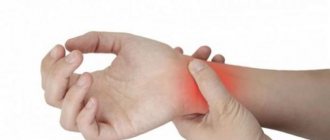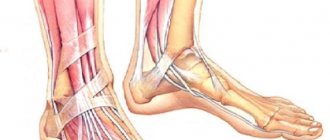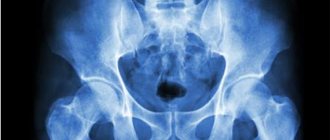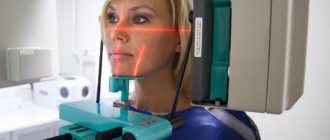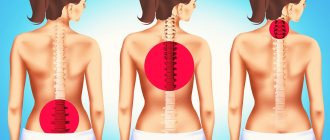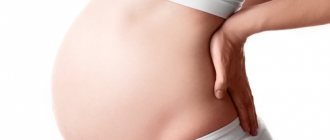Jaw pain in the ear area usually indicates ear and dental pathologies. However, in practice it turns out that severe pain syndrome is caused by joint, heart and tumor diseases. Discomfort in the jaw area may also indicate the progression of a benign or malignant tumor. Therefore, if persistent pain is detected, it is necessary to urgently consult a doctor.
What problems can cause such pain?
Most often, discomfort in the jaw space near the ear develops against the background of dental, bone, joint and heart problems.
Features of pathologies are presented in the table:
| Cause of pain | Description |
| Bone problems | General information: When bone tissue is damaged, the pain radiates to the ear area. Most often this happens with head injuries, fractures of the facial bones of the skull and injuries to the jaw. Symptoms: In case of fractures or damage to bone tissue, the patient detects hematomas at the site of impact, feels pain when chewing or opening the mouth, and observes the appearance of swelling in the fracture area. In more advanced cases, bone displacement develops, which leads to severe pain in the jaw and ear. |
| With joints | General information: Diseases of the temporomandibular joint are often accompanied by aching pain that radiates to the ear area. As the inflammatory process progresses, it becomes difficult for the patient to open his mouth and chew food. Often, the pain syndrome develops against the background of arthrosis, arthritis, which manifests itself in the form of stiffness in mouth movements and aching pain. Symptoms: With articular pathologies, the patient experiences discomfort when opening the mouth, a characteristic clicking sound in the jaw when trying to chew food, and a change in the nature of the pain during the day: it can be aching, pressing, pulsating. When pressing on the problem area, the pain usually intensifies. |
| Problem with the heart and blood vessels | General information: If discomfort in the jaw area is accompanied by pain in the left side of the chest, then the cause of the problem may be cardiovascular disease. As angina progresses, pain radiates to different organs. Most often, discomfort is felt in the arm and shoulder area, but often heart pain radiates to the left jaw and ear. Symptoms: Cardiac pathologies are accompanied by the appearance of sharp pain in the heart, as well as discomfort in the arm, jaw, and temporal zone. As the disease progresses, the pain intensity increases. In this case, the patient needs immediate medical attention. |
| Tumors | General information: With the development of tumor pathologies, in addition to discomfort, the patient may find a lump in the jaw area or behind the ear. The tumor either hurts when pressed or does not produce significant symptoms. It all depends on the nature of the tumor. Symptoms: With the development of tumor diseases, the patient may notice a lump on the jaw or near the ear, which hurts when touched, swells, and interferes with chewing food and opening the mouth. In addition, the patient may observe an increase in the nearest lymph nodes if we are talking about a malignant disease. If a lump is detected, you should not hesitate to seek medical help or self-medicate, as this can lead to disastrous consequences. |
| Dental problems | General information: Dental pathologies are one of the most common causes of pain in the jaw and ear. Discomfort occurs against the background of untreated caries, pulpitis, and growth of wisdom teeth. Symptoms: With dental pathologies, the patient feels pain not only from the outer part of the jaw, but also from the inside. It is painful for the patient to chew food, open his mouth, or drink hot or cold drinks. In some diseases, for example, pulpitis, the pain spreads to the entire facial part, on the side of which the diseased tooth is located. |
Doctor about the causes of jaw pain:
Why do jaw joints click differently?
This depends on the nature of the disease. Here are the most common types of clicks:
- intense - a sound that is heard by others;
- clicks that only the patient hears when talking or chewing food;
- clicks in a calm state, when a person does not move the jaw at all;
- clicks that only a specialist can hear using special equipment. The person does not hear them.
Types of clicks, depending on the moments of playback:
- with the mouth wide open;
- when the mouth is slightly open;
- in a calm state;
- when chewing;
- when talking;
- when yawning;
- when the patient closes his mouth;
- when closing the jaws, etc.
Why does my jaw hurt near my ear?
Pain in the jaw area is a serious symptom that signals the progression of various pathologies. These can be dental diseases, ENT diseases, viral infections, oncological processes in the body. Only a doctor can determine the cause of discomfort after a comprehensive diagnosis.
Dental diseases
Dental diseases are one of the main reasons influencing the development of jaw pain.
Common pathologies that cause pain:
- osteomyelitis . A purulent infectious disease that affects most of the structural components of the jaw bone. The pathology is accompanied by aching pain in the chin area, weakness, chills, and increased body temperature. As the disease progresses, it is difficult for the patient to open his mouth, chew food, or talk. In more advanced cases, the patient's lower face swells, fistulas form, or an abscess develops. Pathology is eliminated with the help of antimicrobial and anti-inflammatory drugs;
- gingivitis . This is an inflammatory disease of the gums that appears against the background of a violation of the integrity of the dentogingival attachment. Gingivitis most often affects teenagers or pregnant women. The development of the disease is influenced by many factors: improper oral care, bad habits, reduced immunity, dental pathologies, caries, infections. The main symptoms of the pathology include pain in the jaw area, radiating to the ear, swelling and redness of the jaw, pain in the teeth, which intensifies when eating cold, hot and spicy foods. In advanced cases, the gums begin to bleed. Gingivitis is treated with antibiotics, anti-inflammatory drugs, and immunostimulating medicinal products;
- alveolitis . a disease accompanied by acute and aching pain in the tooth socket, which most often develops after tooth extraction or surgical treatment. Pain in the gums itself after surgery is considered normal, but if it does not subside a week after the procedure, we may be talking about the formation of alveolitis. As the disease progresses, the patient experiences pain in the tooth socket, which increases in intensity upon contact with food. Discomfort is added by periodic bleeding of the gums, pain in the jaw, ear, and temple areas. The pain syndrome varies in nature: from acute to mild. Treatment occurs with the help of anti-inflammatory and analgesic agents;
- abscess . An abscess develops due to various reasons: injury, infections, viruses, untreated dental pathologies. Accompanied by the appearance of severe headaches that radiate to the jaw, ear, and temples. The patient's temperature rises, general signs of chills appear, and a swelling forms in the gum area, under which there is pus. The tumor hurts when pressed. To treat an abscess, surgical methods combined with drug therapy are used. Initially, the doctor removes the tumor, cleans the wound, and then prescribes antibiotics and immunostimulating drugs to the patient.
Osteomyelitis
Gingivitis
Alveolitis
Abscess
Often, pain in the jaw appears due to an incorrect bite or untreated caries. In such cases, the pain syndrome is unexpressed and may disappear and reappear. Discomfort is easily relieved with analgesics.
Important! The patient must remember that if the problem is ignored for a long time, there is a risk of developing complications with more serious and intense symptoms.
ENT diseases
Discomfort in the jaw area can develop against the background of ENT pathologies :
- glossitis . Glossitis is an inflammation of the tongue tissues, which indicates the development of viral infections. The pathology is accompanied by pain in the tongue area, spreading to the gums and jaw, a burning sensation when food gets in, the development of swelling of the tongue, increased salivation, and speech dysfunction. To treat the disease, antibacterial, antifungal, anti-inflammatory drugs, as well as immunostimulating agents are used;
- pharyngitis . Pharyngitis is an inflammatory disease that occurs against the background of damage to the mucous membrane of the throat and lymphoid tissue. The disease develops when viruses, infections, and fungi enter the body. Pharyngitis is accompanied by pain and dryness in the throat, inflammation of the cervical and ear lymph nodes, pain in the chin, cheekbone, ear area, fever and chills. The disease is treated with anti-inflammatory drugs, antibiotics, antiviral drugs;
- erythroothalgia . Erythroothalgia is a clinical syndrome that is accompanied by acute pain in the ear cavity, radiating to the chin, jaw, and back of the head. The pathology often entails an increase in body temperature and discomfort when opening the mouth and chewing food. To eliminate the disease, complex therapy is used, which is selected individually.
Glossitis
Pharyngitis
Erythroothalgia
Pain syndrome in the jaw area near the ear can also appear against the background of chronic tonsillitis, acute rhinitis, sinusitis, and diffuse otitis media. If such diseases develop, the patient will need medical attention.
Other diseases
Jaw pain can occur due to the following diseases:
- carotidynia . This is a type of migraine accompanied by acute headache and discomfort in the lower part of the face. If left untreated for a long time, the pain syndrome spreads to the entire facial area;
- inflammatory process in ARVI . Pain syndrome during ARVI signals inflammation of the ternary nerve. In this case, the infection penetrates the nerve and blood vessels, as a result of which the patient’s entire face begins to hurt. The patient observes pressing pain in the jaw, temples, and frontal area. Inflammation of the ternary nerve is treated with antibiotics, anti-inflammatory drugs, painkillers;
- TMJ dysfunction . Dysfunction of the temporomandibular joint is accompanied by pain in the jaw and ear when swallowing food or opening the mouth. Patients may observe the appearance of crunches and clicks that appear at the slightest movement of the jaw. Often, TMJ dysfunction is accompanied by congestion and tinnitus, hearing impairment;
- oncology . Jaw cancer develops against the background of frequent injuries to the maxillofacial area, lack of timely treatment of dental pathologies, smoking and drug abuse. The pathology is accompanied by the development of weakness in the body, sudden weight loss, headache and jaw pain, and the appearance of lumps in the problem area.
Discomfort in the jaw area under the ear can signal the development of neuralgic pathologies: inflammation of the superior laryngeal or glossopharyngeal nerve. In this case, the pain is acute. Often, pain in the jaw area indicates cervical osteochondrosis, scoliosis, and vegetative-vascular dystonia.
Causes not related to diseases
Discomfort in the jaw often develops due to bruises, fractures and dislocations, which patients can receive in accidents, fights, or falls.
With minor injuries, swelling in the problem area, mild pain, and the appearance of bruises and hematomas are observed. The patient experiences malaise, headache, dizziness and drowsiness. With fractures, the patient develops the following symptoms :
- acute pain that is not relieved by analyzing means;
- nausea, headache, dizziness;
- problems opening the mouth and chewing;
- speech dysfunction;
- facial asymmetry;
- the appearance of bruises;
- drooping eyeballs.
A fracture is dangerous because it can cause breathing problems and contribute to tongue retraction.
Attention! In case of a jaw fracture, you must immediately call an ambulance. Self-medication can lead to disastrous consequences. In 10% of cases, jaw fractures are fatal.
Description of diseases that cause pain in the jaw and ear when chewing
Pain in the jaw near the ear can occur due to dental, surgical and neurological reasons. Treatment is prescribed taking into account the provoking factor, the location and nature of the pain, and accompanying symptoms.
Dental diseases
Aching pain in the cheekbones and jaw may appear after dental procedures. Often the cause of pain is poor-quality wisdom tooth removal, caries treatment, or advanced carious processes and prosthetics themselves. Jaw pain of this origin is usually accompanied by swelling and inflammation at the operation site. If it does not go away within a few days from the moment of intervention, you should contact a more qualified dentist to eliminate the medical error.
An exception that does not require treatment is aching jaw pain on the left and right, caused by wearing braces to correct the bite. This pain causes constant pressure on the jaw bones; it is normal and can be eliminated with the help of painkillers.
Pain caused by dental diseases and pathologies is usually pulsating in nature and intensifies closer to night. Due to dental pathologies, the cheek may become very swollen. To eliminate unpleasant symptoms, it is necessary to get rid of the source of pain.
Pain during ARVI
The main complication of respiratory diseases is the spread of infection throughout the body. The inflammatory process, as a complication of acute respiratory viral infection, can begin in any part of the body - lungs, intestines, knees, side, mouth. This is why your cheekbones and jaw can hurt when you have a runny nose or a common cold.
If maximum pain is observed between the maxillary and mandibular arches, the reason most often lies in the fact that the joint sac has become inflamed due to the influx of bacteria and viruses. With this pathology, the jaw hurts near the ear and not during chewing, but constantly.
When the ear is inflamed, the cheekbone near the ear may hurt. Usually the ear hurts more intensely, and the pain only radiates to the jaw. Such inflammation is often accompanied by general malaise and an increase in temperature to 37.5–38 °C. Otolaryngologists specialize in treating people with complications of respiratory diseases.
Pain due to facial injuries
- Soft tissue bruise. Even a mild bruise of soft tissues without affecting the bones is accompanied by an acute pain attack, swelling and hematoma. To exclude the possibility of a fracture, which may not be palpable due to the swelling of the cheek, it is necessary to take an x-ray. The consequences of such an injury should be treated if the symptoms do not disappear within several days.
- Dislocation. Dislocation can occur not only due to a blow, but also due to a sharp opening of the mouth. With severe dislocation, even simple chewing and swallowing movements are difficult. After the surgeon visually determines the dislocation, he will take a control photo to rule out a fracture, and then reduce it. Dislocations are characteristic only of the lower jaw, which is why the pain manifests itself from below.
- Fracture. When a fracture occurs, unbearable pain occurs around the injury site, spreading to the entire face. The victim requires immediate medical attention in a medical facility.
Jaw dislocation
Tumors
The ear and jaw on one side may hurt when a bone tumor forms, both benign and cancerous. Before specific symptoms appear, numbness in the muscles, mild swelling, swelling and discomfort in the joints are observed. If there is a tumor under the same ear in the area of which the jaw aches, there is a high probability of developing atheroma - a benign neoplasm. Atheroma can be cured.
TMJ dysfunction
Spontaneous pain syndrome is not typical for diseases of the temporomandibular joint; pain occurs only when pressure is applied or a load is applied to the joint. With TMJ dysfunction, it is painful for a person to chew food, speak, or yawn. But the disease is diagnosed by more obvious signs - clicking and crunching of the joint when chewing and talking, tinnitus.
Articular pathologies are characterized by damage to one side of the face. If, when pressed, pain occurs in the left ear and left side of the jaw, then the disease develops there.
Associated symptoms and what they indicate
You can determine the cause of the pain syndrome if you carefully study its nature. The pain can be acute, throbbing, pressing, mild, and appears only when chewing or pressing. Each of them indicates the presence of different diseases in the body.
Different localization of pain
If pain appears in different places and does not have a clear localization, this may indicate dental and neurological pathologies.
For example, with pulpitis, half of the facial part is affected, on the side of which the diseased tooth is located. In this case, the patient is tormented by shooting pains that manifest themselves in the jaw, temple, cheekbone, and chin. The same is observed with inflammation of the ternary nerve. In this case, the patient also observes a shift in pain from the jaw area to the temporal, zygomatic, and frontal.
Different character
You can determine the cause of discomfort by the nature of the pain :
- spicy _ Sharp and acute pain most often develops against the background of an open or closed fracture, neuralgic inflammation, pulpitis, osteomyelitis;
- pulsating _ Pulsating sensations can develop against the background of caries, periodontitis, cysts, gingivitis, angina pectoris, otitis media;
- aching _ Such sensations signal malocclusion, infectious pathologies, growth of wisdom teeth, neuralgic diseases, dislocations;
Pain in the ear that extends to the jaw and back in some cases indicates the development of infectious diseases, diseases of the jaw and temporal joint, otitis media, tumor neoplasms, and dental pathologies.
Pain occurs when chewing
Pain in the jaw area sometimes does not bother a person at rest, but makes itself felt when chewing food.
Most often, such symptoms indicate the following pathologies :
- bruises, dislocations, closed fractures due to accidents, injuries, falls;
- dental diseases: pulpitis, periodontitis, alveolitis;
- growth of wisdom teeth;
- purulent diseases: osteomyelitis, boil, abscess;
- tumor neoplasms: osteoma, adamantioma;
- carotidynia, inflammation of the ternary nerve.
Reference! Pain in the jaw area, radiating to the ear, often occurs after wearing braces or undergoing surgical treatment.
Pain when pressed
If intense pain in the jaw and chin develops with pressure, this may indicate the following pathologies :
- wisdom tooth growth;
- injury to the jaw area: dislocation, bruise;
- inflammation of the lymph nodes due to viral infections;
- purulent processes: abscess, osteomyelitis, phlegmon;
- pathologies of the temporomandibular joint due to arthritis, arthrosis;
- bite problems;
- benign and malignant neoplasms;
- neuralgic diseases.
Often pain when pressing occurs against the background of angina or heart attack.
Unilateral/bilateral pain on the right/left
Unilateral pain on the right or left side of the face can signal dental and neuralgic diseases. Discomfort on the right or left often occurs due to a diseased tooth located in these parts. Similar symptoms are observed with pulpitis, periodontitis, caries.
Also, one-sided discomfort can indicate heart disease or the growth of wisdom teeth, inflammation of the ternary nerve. Bilateral pain is typical for bruises, dislocations, and malocclusion.
Jaw cracked
Pain syndrome, which is accompanied by a crunching sound, can signal the progression of the following pathologies :
- arthritis, arthrosis;
- TMJ dysfunction;
- wear of tooth enamel;
- injuries;
- malocclusion;
- neurotic spasms.
A painful jaw crunch occurs when the ligaments are sprained.
The jaw/cheekbone is swollen
Swelling may appear as a result of injury to the problem area.
Swelling often develops after dental surgery. Similar symptoms are observed with purulent abscess, malignant or benign diseases, and enlarged cervical and ear lymph nodes.
A number of other pathologies in which the patient detects puffiness and swelling in the chin area:
- odontoma;
- cementoma;
- osteoma;
- odontogenic fibroma.
Swelling sometimes appears as wisdom teeth grow.
Doctor about jaw pain:
When can the jaw click?
A specific click or crunch in the joint occurs when the TMJ, which came out of the joint capsule and shifted to the side, returns to its place. A characteristic symptom can occur in adults and children. Who is at risk?
- Patients who have suffered from unqualified dental prosthetics or their filling without taking into account the dental characteristics. Mistakes made by the dentist, invisible to the unprofessional eye, cause facial asymmetry, uneven distribution of the chewing load and overload of the joint.
- People who are prone to excessive tension in their facial muscles when chewing solid food and exerting physical effort, and react to stressful situations by volitionally clenching their jaws.
- Children of primary and secondary school age who perform a lot and for a long time, singing or reading poetry.
- Children and adults suffering from mechanical facial injuries.
- Middle-aged and older patients who have suffered from otitis media, mumps, tuberculosis, or suffering from infectious diseases of the oral cavity (stomatitis, gingivitis). In some of them, the cartilage tissue of the mandibular joint becomes inflamed, causing arthritis or arthrosis.
How to relieve the condition at home
In case of fractures or other injuries to the jaw area, the patient is advised to immediately apply a cold compress to the sore spot and not remove it until the doctor arrives.
If dental pathologies cause discomfort, you need to take a painkiller and rinse your mouth with warm soda solution. It is not recommended to take a horizontal position during throbbing and nagging pain, as the discomfort will intensify.
If the pain appears as a result of viral infections and inflammation of the lymph nodes, you need to gargle with a solution of furatsilin or soda with salt, drink an anti-inflammatory antipyretic drug and wait for the ambulance to arrive.
Why does my jaw click when I open my mouth?
Most often, such clicking is caused by jaw arthritis. This pathology affects the cartilage layer of the joint or meniscus. Accordingly, the meniscus becomes thinner, the fibers become looser, and the cartilage can partially fuse with the articular head. As a rule, the clicks in this case are multiple, resembling a crunch.
The sound is formed as a result of the movement of the articular heads, which overcome the boundary in the form of folds of the cartilage disc. This crunch can be muffled, and therefore only audible to the person himself. Very often the jaw crunches when the mouth is opened sharply, when subluxation of the joint occurs. With some difficulties, but the jaw can be returned to its place. But sometimes this is impossible on your own - the patient is diagnosed with a dislocation, and here the help of a surgeon will be required.
Which doctors should I contact?
The choice of doctor for discomfort in the jaw area depends on the pathology that led to such symptoms.
If you have jaw pain, you can go to the following specialists:
- therapist (will examine the patient and give a referral to the right doctor);
- traumatologist;
- dentist;
- ENT;
- infectious disease specialist;
- cardiologist;
- neurologist;
- oncologist.
Advice! In case of acute abscesses and other purulent pathologies, it is advisable to immediately contact a surgeon.
What kind of diagnostics awaits?
Diagnostic methods are prescribed by the doctor after a thorough examination of the patient and studying his medical history. To make a diagnosis, the following research methods :
- laboratory tests to determine the presence of infections, viruses and other pathogenic microorganisms;
- radiography;
- CT scan;
- Magnetic resonance imaging;
- arthrography;
- electromyography.
If the doctor suspects the development of a malignant tumor, the patient will be prescribed blood tests for tumor markers. If there are lumps and ulcers, a cytological examination is performed (piercing the lump and collecting a fragment of internal secretion). If the patient has enlarged lymph nodes, a biopsy is performed.
What to do if your child’s jaw hurts
Pain in the jaw area in a child can also signal pathologies such as dislocations, bruises, pulpitis, caries, and pharyngitis. It is forbidden to independently engage in diagnostics if a pain syndrome is detected in a child.
Parents should immediately contact a therapist or pediatric dentist, surgeon, or neurologist. If dental problems are detected, children are prescribed medication. In more advanced cases, surgical therapy is used.
For serious injuries, physiotherapeutic procedures or surgical treatment are prescribed. For ENT pathologies, antibiotics, anti-inflammatory medicinal products, and immunostimulating drugs are used. To relieve pain before seeing a doctor, you can give your child half a painkiller tablet. For bruises, apply a cold compress to the problem area.
Treatment methods, depending on the cause
Depending on the diagnosis made by the doctor, different methods of treating discomfort in the jaw area are used. This may include medication, surgery and herbal medicine.
Medication
For pain in the chin area, anti-inflammatory, analgesic, and antibiotic drugs are used. This method of therapy is effective for the following diseases :
- inflammatory diseases of the jaw joint;
- infectious pathologies;
- viral infections;
- dental diseases;
- articular and cardiac pathologies.
Important! Drug treatment is also advisable for problems with bones and ENT pathologies.
Surgical
Surgical methods of therapy are used in the following cases :
- malocclusion. Orthognathic surgeries are performed to remove facial asymmetry and change the bite;
- skeletal deformities of the jaw of the second, third class, developed against the background of injuries and dislocations;
- purulent abscess;
- dental pathologies requiring tooth extraction.
Surgical treatment is also prescribed in cases where medication has proven ineffective.
What types of operations are performed:
- removing the abscess and clearing the wound of pus;
- installation of a seal;
- installation of artificial dentures or crowns;
- surgery to restore bite;
- removal of teeth that cannot be treated with medication;
- removal of roots.
In oncology, excision of malignant neoplasms and metastases that have developed as the disease progresses is performed.
Physiotherapeutic
Physiotherapeutic procedures are used for pathologies of the temporomandibular joint, as well as after fractures, dislocations and bruises.
Such treatment methods relieve pain, reduce the manifestation of joint noise, swelling, and pulsation.
Physiotherapy for jaw diseases includes the following treatment methods :
- transcutaneous nerve stimulation to reduce pain;
- procedures using ultrasound to reduce myofascial pain);
- short-wave diathermy to reduce the intensity of pain and swelling;
- laser therapy to eliminate myogenic pain;
- manual therapy to alleviate negative symptoms in temporomandibular pathologies;
- home exercises to strengthen muscle and bone tissue.
Ultrasound and laser treatment methods are carried out within a medical institution. Manual therapy is used after a doctor’s prescription and is carried out in specialized offices or at home.
Folk
Traditional methods must be used in conjunction with medication and physiotherapeutic treatment.
Home therapy involves the use of anti-inflammatory compresses and herbal ointments, which reduce the intensity of pain, swelling and discomfort when swallowing.
How to make anti-inflammatory compresses :
- Mix one egg yolk with a teaspoon of turpentine, pour 1 spoon of apple cider vinegar into the mixture, mix all ingredients thoroughly. Treat the affected area with the resulting solution 3 times a day;
- Grate the black radish on a fine grater, strain the mixture through cheesecloth, add a spoonful of fresh honey, a glass of vodka and a spoonful of salt. Mix all ingredients. Apply the resulting solution to the affected area and leave for 15 minutes. Repeat the procedure 2 times a day.
Advice! In addition to compresses, the patient must remain in bed, exclude hard foods from the diet so as not to injure the jaw, and carry out simple exercises to develop the jaw joints.
Supporting actions
Self-massage of the jaw area is necessary for developing muscles and joints. It is carried out using the following techniques :
- stroking;
- rubbing (with gentle pressure);
- effleurage
Before the procedure, the patient will need to thoroughly wash their hands and treat them with a small amount of oil, which will ensure good gliding of the hands over the skin. After this, you need to walk lightly over the problem area, spending no more than 5 minutes on each part of the body. The total duration of the massage should be within 15 minutes. You can massage the jaw area 2-3 times a day.
Gymnastics should be done only after a doctor’s prescription. It includes a series of strengthening and relaxing procedures that reduce pain and also allow the patient to get rid of crunching in the jaw area.
Examples of muscle relaxation exercises:
- the patient massages the chin area for 5 minutes, and then slowly pronounces all the letters of the alphabet, starting with the letter “B” and adding the sound “A” to each of them. The result is the syllables “Ba”, “Va”, “Ga”;
- the patient pronounces the letters of the alphabet, while simultaneously massaging the area of the chin and jaw;
- to strengthen the ligaments, the patient opens his mouth, stretches out his tongue to the fullest extent and tries to pull it towards the chin, in this position he lingers for 10 seconds. The exercises are repeated 15 times.
Therapeutic exercises can be performed 2-3 times a day. It is advisable that it goes away a few hours after eating. The duration of classes should not exceed 15 minutes. During the process, all movements must be smooth; strong jerks can lead to increased pain.
What to do if you have jaw pain:
Possible complications
If you do not promptly pay attention to the pain in the jaw area that extends to the ear, you may encounter unpleasant complications . Among them:
- partial or complete hearing loss;
- increased sensitivity of teeth, development of carious processes;
- muscle tension, which leads to pain in the back, shoulders, chest;
- dizziness, visual impairment, appearance of “spots” before the eyes;
- sleep disturbance, insomnia, and resulting depression;
- photophobia (fear of bright lighting);
- pain in the eyeball area;
- the appearance of tumor formations in the jaw area (during oncological processes);
- metastasis to vital organs.
In the initial stages of pathology development, the patient has a considerable chance of a full recovery. If you ignore the problem, the risk of encountering unpleasant consequences increases. In such cases, you will have to resort to surgery.
Pain in the jaw area is a serious symptom that signals the progression of many diseases. If discomfort is detected, the patient must take a painkiller tablet, apply a cold compress to the problem area (if damaged) and call a doctor. Such symptoms should not be ignored, as they can lead to problems with hearing or vision.
After recovery, you need to monitor the condition of your teeth, regularly visit the dentist, monitor your diet and the quality of food you eat, avoid stressful situations, and check every year for the presence of cancer processes in the body.
Causes of pain under the jaw
There are many reasons for pain in the neck and/or jaw, and they can indicate various health problems. There are many structures in the neck area, the pathologies of which cause pain and serious discomfort.
Pathological changes in lymph nodes
There are many lymph nodes behind our ears, on our neck, and in the lower part of our jaw. And one of the diseases that leads to painful discomfort is called lymphadenitis. This is inflammation of the lymph nodes due to bacterial or other infections. It is accompanied by severe sharp pain in the neck, which will radiate to the jaw, and will also cause an increase in body temperature. Without treatment, lymphadenitis becomes chronic, and then constant fatigue, weight loss and general malaise are added to the elevated temperature. Another pathology may be tumors that appear on the lymph nodes. These are, as a rule, metastases that have penetrated from any organs affected by cancer. The nature of the pain varies, but weakness and weight loss also accompany this condition.
Glossitis
Another disease that is associated with an inflammatory process, but does not affect the lymph nodes, but the tongue. Signs of glossitis are a bright red color of the tongue, severe swelling of the tongue and lower jaw. There may also be purulent discharge from the glands in the mouth, pain radiating to the ear, jaw and neck.
Pharyngitis, tonsillitis, sore throat
These diseases can also cause pain. But at the same time, if your neck hurts, then the pain radiates not under the jaw, but into the throat. With a sore throat, the pain intensifies at the time of swallowing, and the person also develops all the signs of an acute respiratory infection or flu (ear pain, fever, weakness, lack of appetite, etc.). For acute pharyngitis
Possible inflammation of the lymph nodes.
Jaw fractures
A fracture in the lower part of the jaw occurs due to a strong blow, head injury or accident. Fractures can be direct or reflected, multiple, fragmented, displaced, open or closed, but in any case the person experiences severe pain, which is accompanied by swelling, hemorrhage and impaired chewing function. In case of a fracture, you should immediately consult a doctor.

